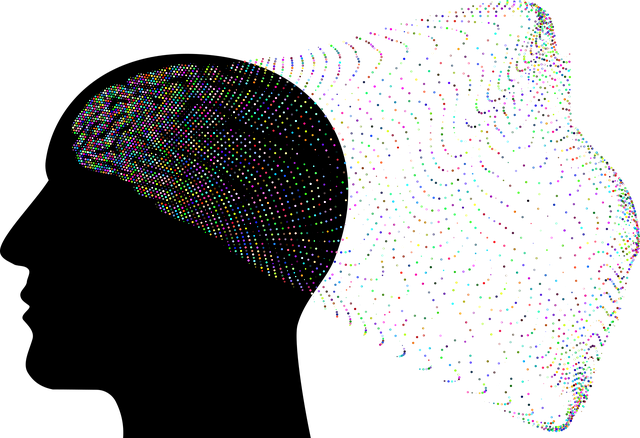Accurate diagnosis of complex mental health conditions like Autism Spectrum Disorder (ASD) is crucial but challenging, with misdiagnoses leading to inappropriate treatment and social adversity. Enhancing training for mental health professionals in Wheat Ridge through Compassion Cultivation Practices and Mental Wellness Coaching Programs improves diagnostic accuracy, fosters emotional regulation, and reduces burnout. Wheat Ridge Autism Spectrum Disorder Therapy combines evidence-based practices, personalized guidance, behavioral therapies, cognitive strategies, sensory integration, mindfulness, and journaling to improve diagnosis accuracy, enhance social skills, communication, and mental wellness for individuals on the autism spectrum. Building a supportive network through professional training and community education raises awareness, empowers individuals to recognize ASD signs, and advocates for accurate diagnoses, ultimately leading to better access to quality care like Wheat Ridge Autism Spectrum Disorder Therapy services.
Mental illness diagnosis accuracy is a critical aspect of patient care, yet challenges like misdiagnoses pose significant risks. This article explores efforts to improve diagnostic precision, focusing on innovative approaches, specialized therapies like Wheat Ridge Autism Spectrum Disorder Therapy, and the crucial role of education in building supportive communities. By delving into these areas, we aim to shed light on strategies that enhance accuracy, ultimately leading to better patient outcomes.
- Understanding the Challenges: Uncovering Misdiagnoses and Their Impact
- Innovative Approaches to Enhance Diagnosis Accuracy
- The Role of Specialized Therapies: A Case for Wheat Ridge Autism Spectrum Disorder Therapy
- Building a Supportive Network: Educating Professionals and Communities
Understanding the Challenges: Uncovering Misdiagnoses and Their Impact

Diagnosing mental health conditions accurately is a complex process, often fraught with challenges that can lead to misdiagnoses. These errors have significant consequences for individuals seeking treatment, especially when dealing with complex conditions like Autism Spectrum Disorder (ASD). Misidentifying ASD can result in patients receiving inappropriate therapy or even worse, missing out on the specialized care they genuinely need.
The impact of misdiagnosis is profound. It may cause further distress to the individual, affecting their emotional well-being and social interactions. For instance, a person with ASD might struggle with communication strategies if they are not properly understood, leading to increased anxiety and potential burnout. Therefore, efforts towards improving diagnostic accuracy, such as enhanced training for mental health professionals in Wheat Ridge, are crucial steps towards ensuring effective and timely treatment, fostering better emotional regulation, and preventing burnout among individuals with ASD or similar conditions.
Innovative Approaches to Enhance Diagnosis Accuracy

In recent years, mental health professionals have embraced innovative approaches to enhance diagnosis accuracy, particularly for conditions like Wheat Ridge Autism Spectrum Disorder Therapy (ASD). One such method is integrating Compassion Cultivation Practices into treatment plans, fostering a deeper understanding of patients’ emotional states and enhancing therapeutic relationships. By cultivating empathy and self-compassion, therapists can improve communication strategies, making it easier to identify subtle cues and nuances in patient behavior that might otherwise be overlooked.
Additionally, the development of Mental Wellness Coaching Programs has played a significant role in improving diagnosis accuracy. These programs focus on empowering individuals with effective communication skills, enabling them to express their feelings and needs more articulately. Such strategies not only facilitate clearer diagnoses but also promote better outcomes in long-term mental wellness management. This holistic approach, combining compassion cultivation and enhanced communication, offers promising avenues for accurately diagnosing and treating conditions like ASD in Wheat Ridge.
The Role of Specialized Therapies: A Case for Wheat Ridge Autism Spectrum Disorder Therapy

Wheat Ridge Autism Spectrum Disorder (ASD) Therapy is a specialized approach that offers hope and significant improvements in diagnosis accuracy for individuals on the autism spectrum. This unique therapy goes beyond traditional methods by providing tailored interventions designed to address the specific challenges faced by those with ASD. Through a comprehensive understanding of ASD, therapists employ various techniques, including behavioral therapies, cognitive-behavioral strategies, and sensory integration, to enhance social skills, communication, and overall mental wellness.
The program’s effectiveness lies in its ability to cater to each individual’s unique needs. By combining evidence-based practices with personalized guidance, it fosters positive thinking and anxiety relief, enabling individuals to navigate their daily lives with greater ease. Regular sessions focused on mindfulness and journaling exercises further strengthen the therapeutic process, encouraging self-awareness and emotional regulation—crucial aspects of maintaining mental wellness.
Building a Supportive Network: Educating Professionals and Communities

Building a supportive network is essential for improving mental illness diagnosis accuracy, particularly when focusing on conditions like Wheat Ridge Autism Spectrum Disorder Therapy. Educating both healthcare professionals and community members plays a pivotal role in this process. Professionals can benefit from specialized training programs that teach them about the diverse presentations of autism spectrum disorders, helping them go beyond surface-level symptoms to understand the nuances that can improve diagnosis reliability. This is where Burnout Prevention Strategies for Healthcare Providers come into play, ensuring practitioners remain engaged and adept at their roles.
On a community level, raising awareness through educational initiatives empowers individuals to recognize signs and advocate for accurate diagnoses. Mind Over Matter Principles can be shared to encourage resilience and healthy coping mechanisms among those affected and their families. Additionally, promoting open conversations about mental health fosters an environment where people feel comfortable seeking support and understanding, ultimately leading to improved access to quality care, including Wheat Ridge Autism Spectrum Disorder Therapy services.
Mental illness diagnosis accuracy is a multifaceted issue that demands innovative solutions. By understanding the challenges, such as misdiagnoses and their detrimental effects, we can implement effective strategies. Innovative approaches, like advanced assessment tools and specialized therapies like Wheat Ridge Autism Spectrum Disorder Therapy, show promise in enhancing diagnostic accuracy. Additionally, building supportive networks through education for both professionals and communities is crucial to ensuring accurate and timely diagnoses. These efforts collectively contribute to improving patient outcomes and fostering a more compassionate mental health landscape.














